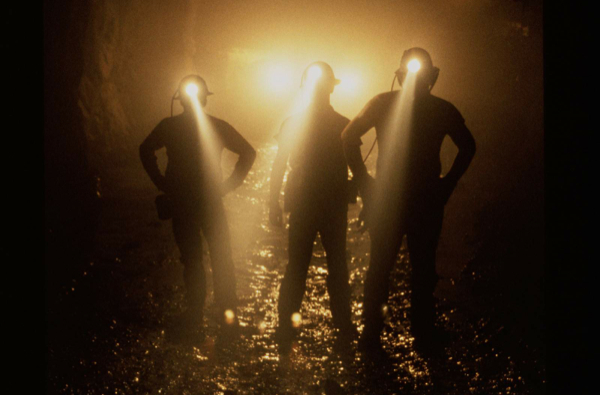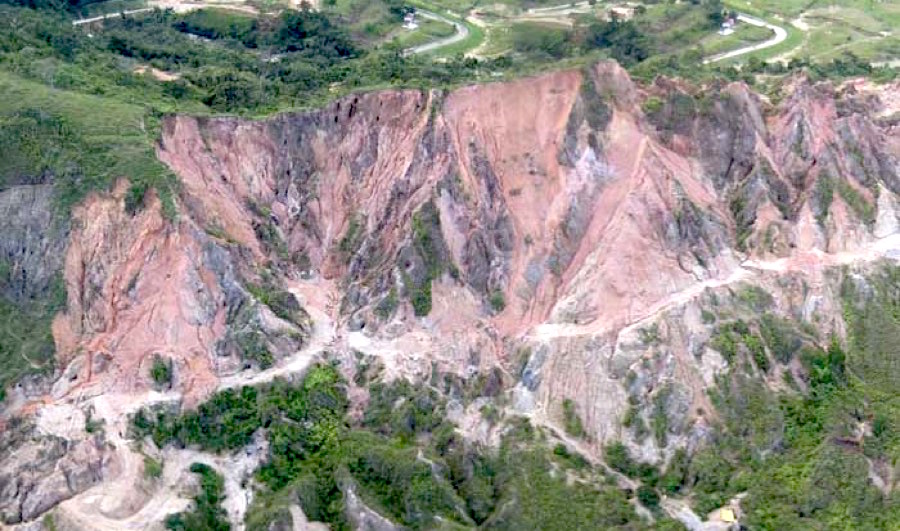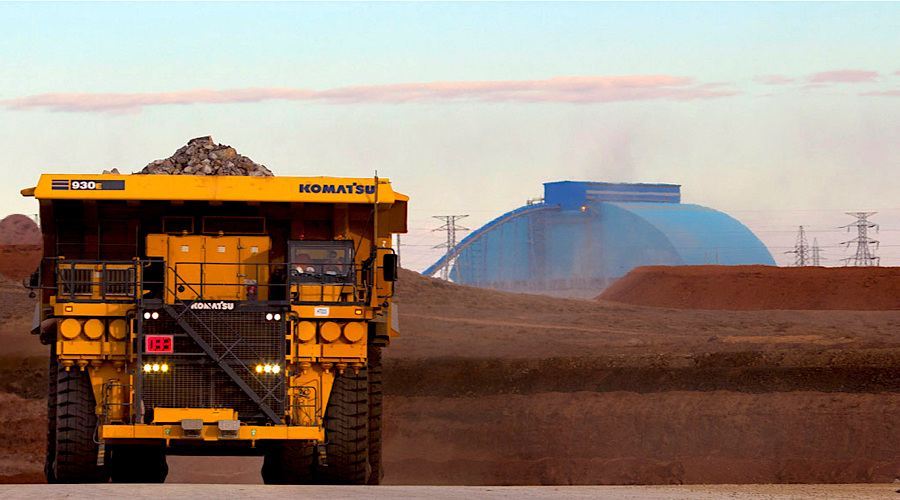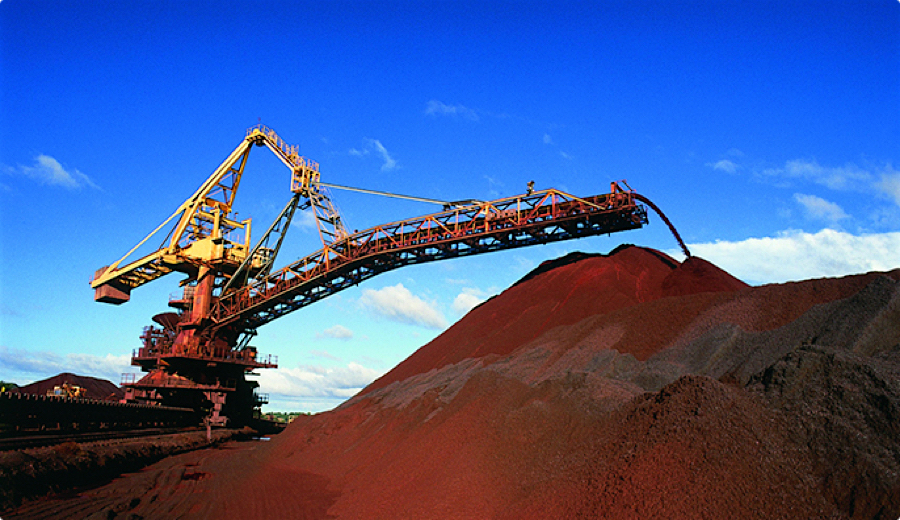Chile’s President puts proposed mining tax on the table
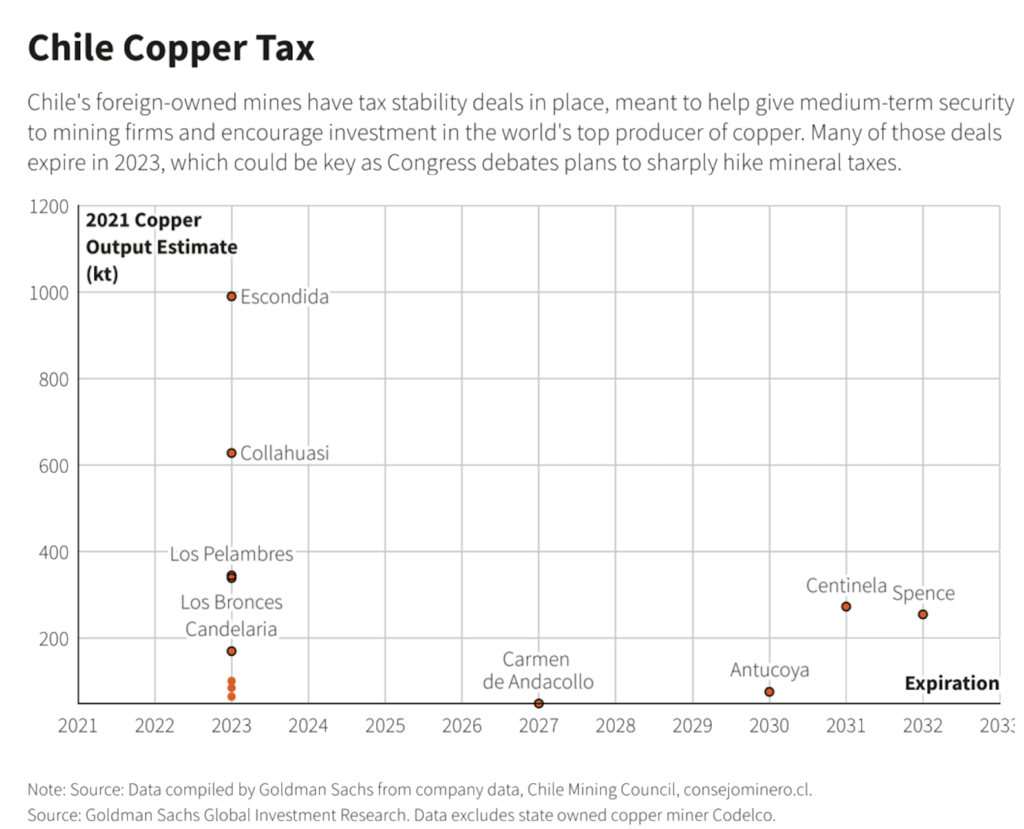
Boric invited companies to have a “technically sound debate” regarding the mining tax reform and said terms were still up for discussion.
Since the new leftist government introduced tax reforms earlier this year, the mining industry has been up in arms. It argues that, as they stand, the reforms would add uncertainty to investment decisions needed to help fill a global supply gap as demand rises during the clean energy transition.
The bill includes a 1% to 2% tax on sales for companies that produce 50,000 to 200,000 tonnes of copper a year, and 1% to 4% for those that produce more than 200,000 tonnes.
Miners producing more than 50,000 tonnes annually would also be subject to a 2% to 32% tax on operating profits, using a sliding scale of copper prices between $2 and $5 per pound.
Earlier in the evening, the head of Sonami Diego Hernandez said at the event the mining sector had not been listened while the country’s tax reform was being drafted, and the government’s proposals were “extreme and dogmatic”.
Hernandez added that the proposed modifications to mining royalties, as they are currently structured, would make the country’s sector less competitive, putting “a good part of the higher-cost mining operations at serious risk.”

“If you had warned me, I would have come in combat uniform,” said the President after Hernández’s speech.
If approved, the changes would come into force partially in 2024 once tax stability contracts expire.
Rating agency Fitch said this week that total taxes for a mining company operating in the South American nation would increase by about 20pp, or close to 60% of pre-tax profits when compared with the current royalty average of about 40%.
“If the bill is approved in its current form, Chile will have one of the heaviest tax burdens in the world, imposing an additional levy on an already challenged industry,” Fitch analysts wrote.
Copper is a vital element in the global quest to achieve carbon neutrality due to its use in the batteries that power electric vehicles, wind turbines and solar panels.
Chile, the world’s largest copper producer, churns out 5.6 million tonnes of copper a year, but has the potential to generate 7 to 8 million tonnes of the metal if projects currently in the pipeline get the go-ahead.
Hernandez said he hoped the final reform would be clear enough for miners to feel confident pouring in an estimated $80 billion into the country over the next few years.
The nation’s copper output has been dwindling as of late, recording a fall of 8.6% in July, compared to the same month last year, to 430,028 tonnes, the country’s statistics agency INE said on Wednesday.
This post has been syndicated from a third-party source. View the original article here.

